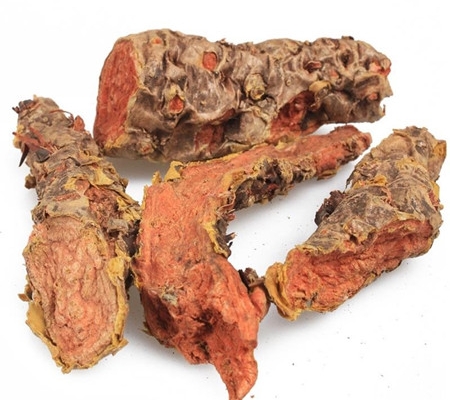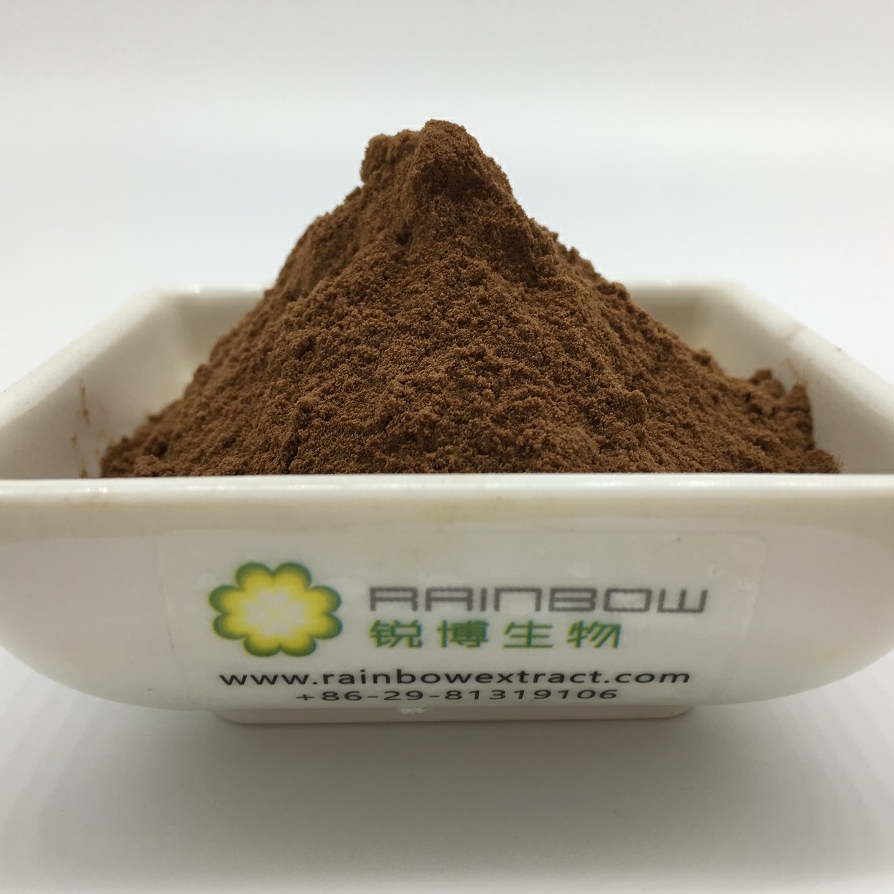Working all day long causes stress for office workers, and stress is a basic physical and emotional response in everyone’s life; However, chronic stress can negatively affect the brain and body, which can lead to stress-related diseases including accelerated aging, cancer, and depression. Rhodiola rosea root extract has been found to contain more than 140 compounds, many of which are naturally occurring phytochemicals (3 rosavins and 1 salidroside) that are believed to have antioxidant and stress resistance properties. Rhodiola rosea extract is classified as an adaptogen that enhances stress tolerance and normalizes the stress response. Do you know how the 3 rosavins and 1 salidroside work for you?
What’s Rhodiola rosea 3 Rosavins and 1 Salidroside?
Rhodiola rosea is a flowering, dense succulent plant native to the Arctic and mountainous regions of Asia, Europe, and North America. Its roots, also known as Arctic root and golden root, contain unique phytochemicals that may be responsible for its therapeutic benefits, including salidroside and rosavins. The benefits of rhodiola rosea are usually obtained through supplements. Shop for quality rhodiola Rosea extracts and look for products with a standardized ratio of 1% salidroside and 3% rosavin, that’s the 3 rosavin and 1 salidroside, which are naturally occurring ratios.
What are the benefits of 3 Rosavins and 1 Salidroside?
To prevent or limit the negative effects of stress, the body ADAPTS to stress using a dynamic process called stress resilience. Genetics, environmental factors, and prior stressors and trauma exposures can influence an individual’s ability to resist the negative effects of stress. Adaptogens, such as R. rosea, enhance stress resilience, reduce sensitivity to stressors, and prevent stress-induced cell damage and dysregulation. Research suggests that these mechanisms may provide a variety of benefits, including cardiac protection, longevity, and neuroprotection.
Regulating stress
Stress is a physical response to an adverse situation that can trigger anger, frustration, tension, or trauma, and it manifests both physical and psychological symptoms, including exhaustion, headaches, and irritability. When we are stressed, hormones including adrenaline and cortisol are released, which triggers our fight or flight response, which increases alertness, muscle tension, and heart rate. When the body is under too much stress, this constant state of tension can be exhausting, leading to fatigue and poor concentration. Rhodiola rosea extract may help regulate the stress response, promoting better adaptation and resilience to stressors. In a clinical trial, stressed and fatigued night doctors were given rhodiola extract supplements or placebos. The fatigue index was used to assess the degree of fatigue before and after each shift. Within the first two weeks, fatigue indexes in the treatment group reported significant improvements, indicating Rhodiola’s ability to reduce overall fatigue.
Anti-aging
As we age, our organs and tissues naturally lose their function and work less efficiently. This makes aging a risk factor for many chronic diseases, including Alzheimer’s disease and cardiovascular disease. Based on animal studies, life-extending interventions can also delay or prevent many chronic diseases. Rhodiola rosea extract has also been shown to extend the life span of fruit flies by up to 31%. In organisms including fruit flies, worms and yeast, rhodiola rosea extract enhances stress resistance and delays age-related fatigue and immune decline. The exact mechanism of rhodiola rosea extract’s anti-aging properties is largely unknown, as body composition, diet, and extract concentration influenced the efficacy of rhodiola Rosea in the studies reviewed. Therefore, further research, especially in human subjects, is needed to understand its anti-aging effects.
Antidepressant
Excessive stress can lead to the development of anxiety and depression. External stressors are processed through sensory pathways in the central nervous system (CNS). These pathways play a key role in the stress response and can become dysfunctional under chronic stress, which can lead to changes in behavior and mood. Rhodiola rosea has been found to have antidepressant like effects in animals, showing regulation of dysfunctional stress response pathways. In a clinical trial of depressed patients, supplementation with rhodiola rosea extract significantly reduced Hamilton Depression Scale scores, a scale widely used to assess depression. Although further research is needed, these results suggest that Rhodiola rosea may have antidepressant like properties.
Anti-inflammatory
Studies have shown that acute stress enhances immune function and limits systemic inflammation, while chronic or intense stress may cause the immune system to become overactive, leading to a pro-inflammatory response. Excessive stress and inflammation have been linked to the onset and development of various chronic diseases, including Alzheimer’s disease and cardiovascular disease. Studies have shown that antioxidant-rich Rhodiola root may be a beneficial anti-inflammatory agent for the following stress and age-related conditions. It’s important to note that while research suggests rhodiola rosea may be beneficial in these conditions, further clinical trials are needed to confirm these effects in humans.
- Prevention of cardiovascular disease
Inflammation reportedly plays an important role in the onset and development of atherosclerosis, a disease characterized by fatty plaque deposits within the arteries. These arteries can harden and become blocked, which can lead to heart disease. The researchers found that in mice, salidroside in rhodiola rosea extract acts as a heart protectant. After receiving salidroside treatment for eight weeks, the atherosclerotic mice had lower levels of blood lipids and inflammation, which reduced plaque buildup.
- Prevent type 2 diabetes
Overproduction of various inflammatory molecules can promote insulin resistance, type 2 diabetes, and diabetes-related complications, including diabetic nephropathy (kidney disease) and eye disease (retinopathy). This overproduction can be the result of a variety of triggers, including aging, poor diet, too much fatty (fatty) tissue, and too much stress. The researchers found that treatment with the drug anti-inflammatory drugs can improve insulin secretion and protect kidney and eye function in people with type 2 diabetes. This relationship is also being studied using natural alternatives. Studies in obese mice have shown that administration of salidroside can significantly improve glucose and insulin resistance and alleviate hyperglycemia (hyperglycemia). Rhodiola rosea extract can also prevent diabetes complications. In diabetes-induced rats, Rhodiola rosea extract prevents early kidney disease by restricting the expression of pro-inflammatory molecules in the kidneys.
- Prevent neurodegenerative diseases
The occurrence and development of neurodegenerative diseases such as Alzheimer’s disease, multiple sclerosis and Parkinson’s disease are affected by many factors. However, nerve damage is a major underlying cause of disease progression. Neuroinflammation is reported to be an important factor leading to nerve damage. Rhodiola rosea extract may be an effective neuroprotective agent because of its anti-inflammatory properties. In a rat model, salidroside treatment reduced cognitive impairment and neuroinflammation. This evidence is also supported by in vitro studies showing that salidroside exhibits a cytoprotective effect by inhibiting certain inflammatory molecules.
Anticancer
Cancer is one of the leading causes of death worldwide, and chemotherapy is the main cancer treatment; However, chemotherapy can damage healthy tissue and may not always be effective. These limitations have prompted researchers to explore alternatives, such as plant-derived therapies, which have been found to have minimal side effects compared to other interventions. Studies have shown that red rose and its bioactive ingredients have anti-tumor properties and may be effective against a variety of cancers. In vitro cancer cell culture, salidroside exerts anti-tumor effects by limiting cell proliferation and inducing apoptosis (a series of events that lead to cell death). Another study using mice also found that Rhodiola rosea extract enhanced the therapeutic effect and reduced adverse effects when combined with a pharmaceutical antineoplastic agent. Further research is needed to understand whether Rhodiola rosea extract is an effective anti-tumor agent in humans.
Sum up
Rhodiola rosea extract has been extensively studied in vitro and in animal studies. However, clinical studies in humans are limited. The adaptive bioactive compounds in Rhodiola rosea extract may have a wide range of antioxidant, anti-inflammatory and anti-stress properties. If you are interested in focusing on healthy aging, going through stressful times in your life, or suffering from stress-related illnesses, consider Rhodiola rosea 3 rosavins and 1 salidroside. If you are a patient, consult your doctor before adding it to your treatment regimen.
- Dandelion Extract: What It Is, Benefits, Uses and Side Effect - April 23, 2024
- Is Berberine Extract Help For Weight Loss? - April 11, 2024
- Why Is Pysllium Husk Powder A Popular Meal Replacement Ingredient? - April 3, 2024





